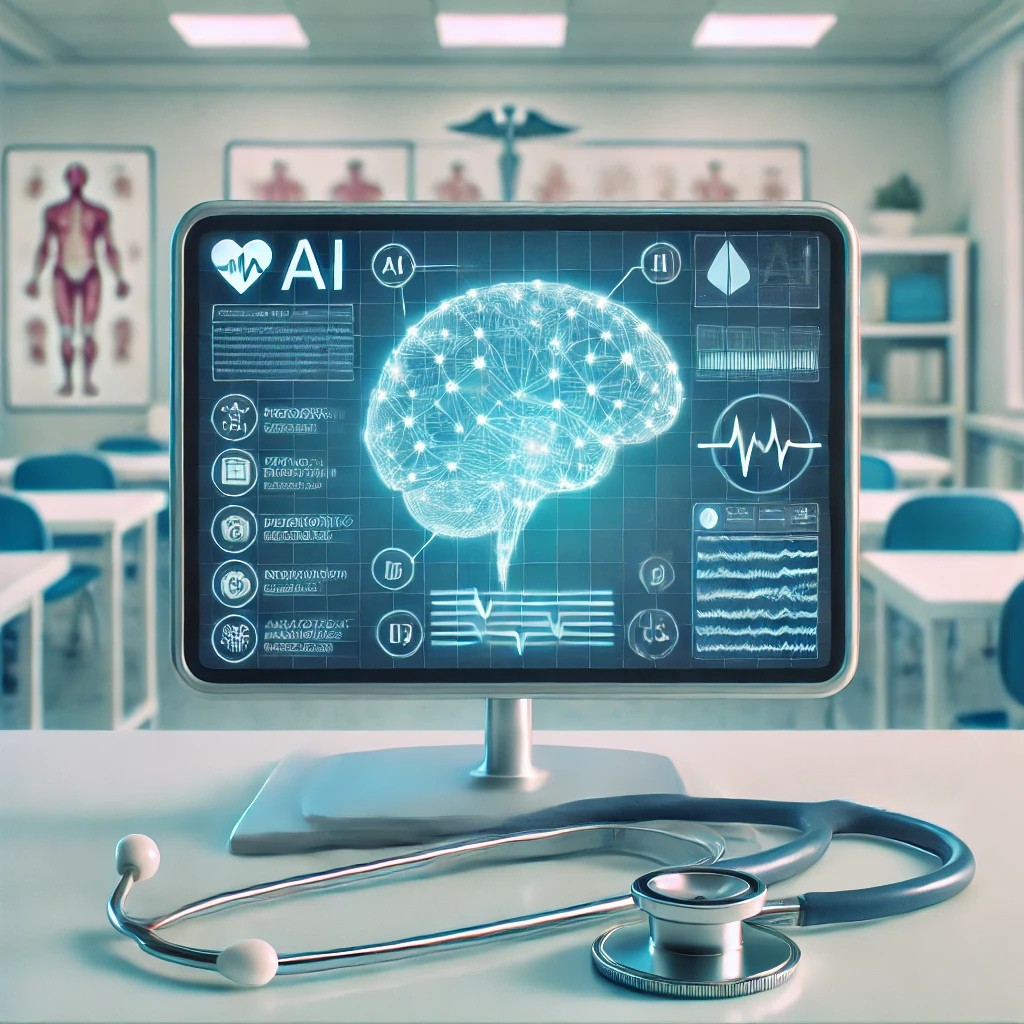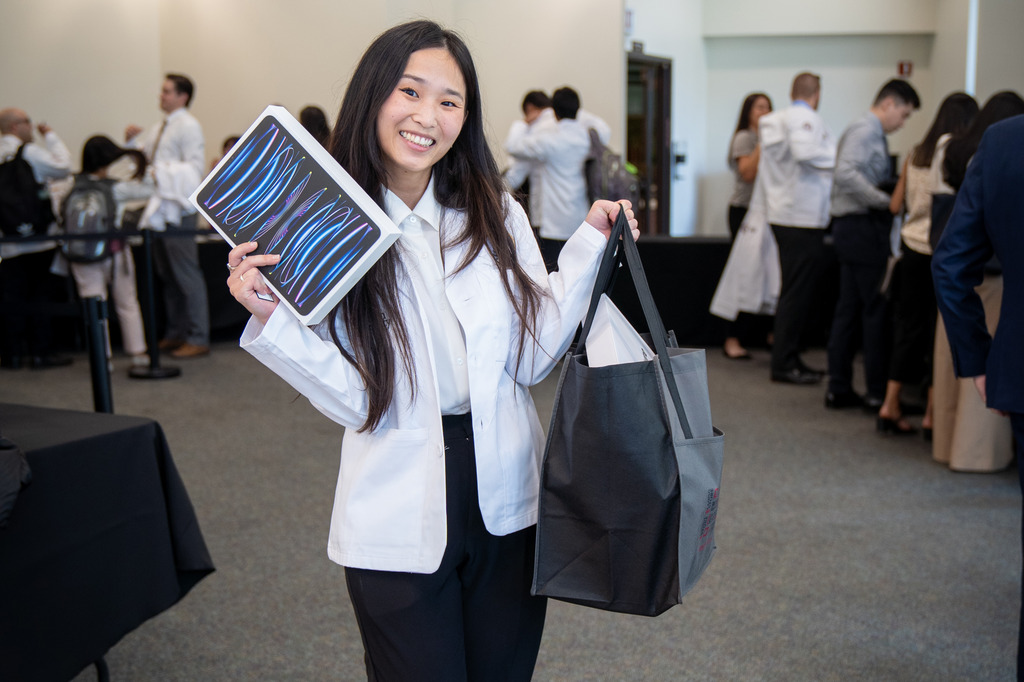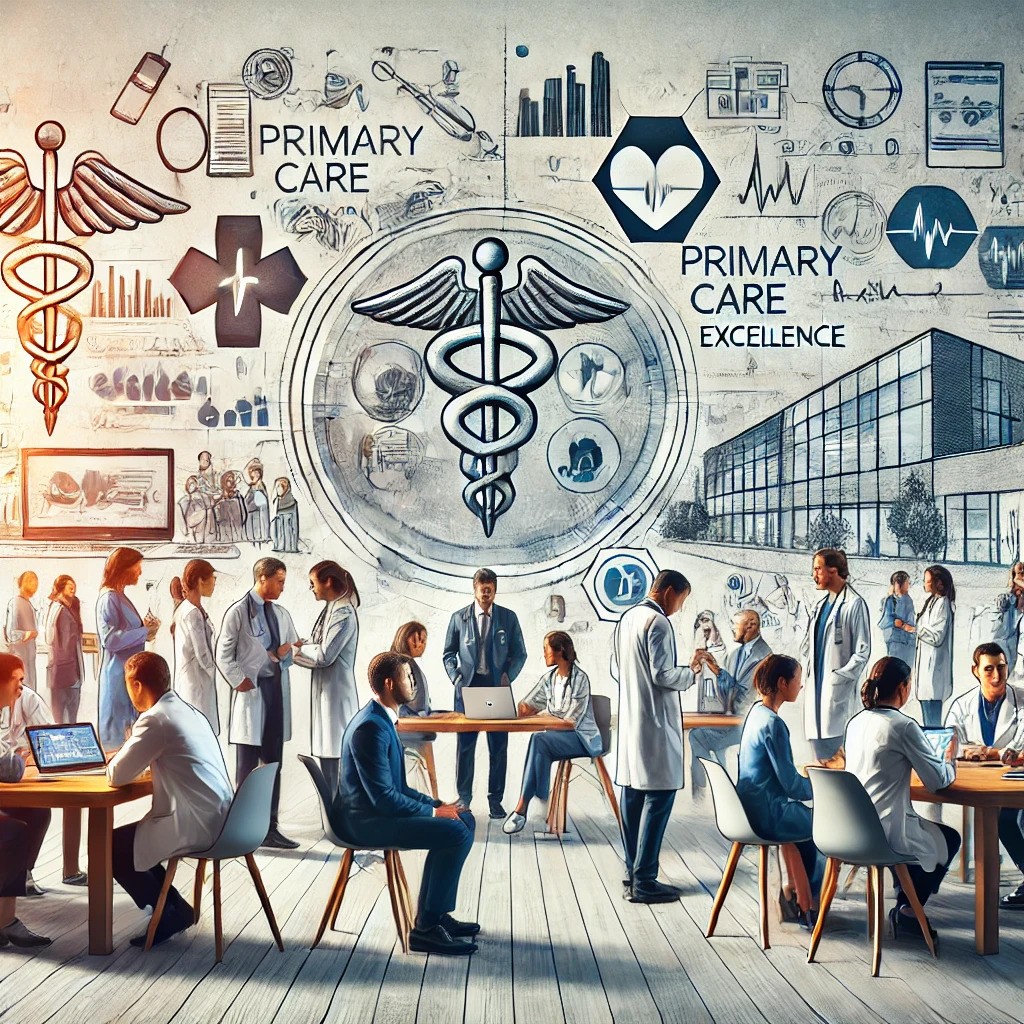
Medical education is undergoing a transformation with the integration of artificial intelligence (AI) tools like ChatGPT. By offering innovative solutions for personalized learning, critical thinking, and accessibility, ChatGPT has become an invaluable resource for students and educators alike. To explore its impact further, we bring insights from two experts in the field: Edward Barnes, MD, Vice Dean of College Affairs, Gerald Thrush, PHD, Vice Dean of Academic Affairs, and Gina Miller, MD, Assistant Professor Family Medicine. In this Q&A, they share their perspectives on how ChatGPT is shaping the future of medical education, its potential applications, and the challenges that come with it.
What makes ChatGPT different from other educational tools available to medical students?
Edward Barnes, MD: ChatGPT provides unique capabilities to categorize and organize vast amounts of online resources effectively. It allows students to input their curriculum and calendar requests, helping them structure personalized study plans. Unlike traditional search engines or costly organizational services, ChatGPT offers these benefits directly at students’ fingertips, including its free version, making it an accessible and invaluable tool for time management and study organization.
Gina Miller, MD: While I’m not familiar with all tools available, ChatGPT stands out as an excellent resource for purposeful use. For example, pre-clinical students can upload their SOAP notes and faculty-provided templates into ChatGPT to receive rewritten versions in an ideal format. This process helps improve their documentation skills and enhances learning.
Gerald Thrush, PhD: ChatGPT serves as a valuable resource for both students and faculty, offering the ability to create curriculum summaries and sample questions with ease. In just seconds, it can condense lecture material, helping students grasp key concepts quickly and efficiently.
How does ChatGPT contribute to personalized learning in medicine?
Edward Barnes, MD: ChatGPT’s adaptability allows students to tailor its responses to their specific needs, creating study plans and critical thinking exercises. It’s especially beneficial for organizing vast amounts of information and developing personalized strategies for mastering complex subjects.
Gina Miller, MD: ChatGPT mimics patient responses, offering students a low-stress environment to practice humanistic interactions. By making mistakes unobserved, students can reflect, learn, and refine their communication skills.
Gerald Thrush, PhD: Since students frequently request sample questions on medical school curriculum topics, ChatGPT becomes a valuable tool during exam preparation. It can generate practice questions and, to reinforce key concepts, provide rationales for correct answers along with reference materials for further in-depth review when needed.
How can ChatGPT assist professors in the medical classroom setting?
Edward Barnes, MD: Professors can upload their content into ChatGPT to optimize teaching approaches. For instance, it can generate engaging workshop ideas, create outlines, develop learning objectives, and suggest exam questions. ChatGPT acts as a brainstorming partner, helping professors refine and enhance their educational strategies.
Gina Miller, MD: I’ve used ChatGPT to create word clouds from student-generated differential diagnoses, guiding further discussion. It also aids in designing board-style questions incorporated into lectures, fostering active learning.
Gerald Thrush, PhD: I’ve found ChatGPT to be a helpful tool for creating sample questions in the format of medical school licensing exams. With the right prompts, it can generate questions that can be tailored for use in practice quizzes. I always indicate “AI-assisted” at the beginning of each question to acknowledge that I was not the sole author.
How can ChatGPT facilitate interactive learning experiences in medical courses?
Edward Barnes, MD: ChatGPT can suggest icebreakers, generate open-ended questions, and help design small-group activities. By offering scenarios or case studies, it encourages collaboration and personal growth among students.
Gina Miller, MD: Although I haven’t used it interactively in real-time, ChatGPT could be instrumental in developing evolving cases that showcase differential diagnosis and clinical reasoning. This approach provides students with a dynamic and authentic learning experience.
How can ChatGPT help students develop critical thinking and diagnostic skills?
Edward Barnes, MD: ChatGPT assists by generating higher-order exam questions and critical thinking exercises. Its effectiveness depends on the quality of prompts students provide, encouraging them to ask more probing questions.
Gina Miller, MD: Inputting case details into ChatGPT can help students develop broad differentials, reprioritize diagnoses as new information emerges, and refine their diagnostic reasoning skills.
How might ChatGPT support students in mastering clinical skills and procedures?
Gina Miller, MD: ChatGPT caters to various learning styles. By crafting accurate prompts, students can receive tailored educational resources, such as procedural videos or skills demonstrations, ensuring reputable and effective learning.
What role can ChatGPT play in helping students prepare for exams like the USMLE or COMLEX?
Edward Barnes, MD: ChatGPT excels in helping students organize their study schedules and manage their time effectively. While it currently lacks the specificity to analyze individual performance data and recommend targeted strategies, future advancements may enable such personalized assistance.
Gina Miller, MD: ChatGPT can assist in creating individualized study schedules based on self-assessment exams and personal calendars, optimizing preparation for areas of weakness.
Gerald Thrush, PhD: As indicated by my colleagues, ChatGPT to help to create an effective study plan in alignment with the national licensing exam blueprints.
How could ChatGPT and AI-driven tools change the way medical knowledge is retained and applied?
Edward Barnes, MD: AI reduces the need to memorize vast amounts of information, focusing instead on critical thinking and accessing accurate knowledge when needed. This shift allows physicians to dedicate more attention to patient interaction and compassionate care.
Gina Miller, MD: By evolving alongside users, ChatGPT offers updated clinical recommendations and assists in crafting individualized care plans. This capability helps reduce healthcare costs and enhances patient outcomes.
Are there any concerns about over-reliance on AI in medical training, and how can these be addressed?
Edward Barnes, MD: Over-reliance on AI risks diminishing foundational knowledge and critical thinking skills. AI cannot replace the human element of doctoring, or the checks and balances provided by expert instructors. Emphasizing human experience and compassion remains essential.
Gina Miller, MD: Reliance on AI-generated notes or order sets may lead to skill erosion, particularly in situations without access to technology. Ensuring that students develop robust foundational skills is crucial.
Gerald Thrush, PhD: While I appreciate ChatGPT as a tool for constructing questions, truly grasping the nuances of a question requires expert knowledge. In the past, many faculty criticized Wikipedia for lacking a robust review process to ensure accuracy. I see a similar issue with ChatGPT. While it can produce accurate content, it may overlook important details in sample questions and has been known to “hallucinate,” presenting false information as if it were correct. Like Wikipedia, ChatGPT has its place, but users should exercise caution and avoid relying on it as a shortcut in medical education.
How might ChatGPT make medical education more accessible to students in underserved areas?
Edward Barnes, MD: ChatGPT’s accessibility levels the playing field, providing free resources to students from underserved areas. It offers guidance on applying to medical school, preparing for interviews, and understanding the profession, compensating for the lack of mentors or family members in medicine.
Gina Miller, MD: While its role in improving accessibility remains uncertain, ChatGPT’s rapid search capabilities and tailored responses can empower students with limited resources to achieve their educational goals.
Gerald Thrush, PhD: ChatGPT has the potential to be a game-changer in medical education. Its accessibility enables anyone, including those in underserved areas, to harness the power of this resource and benefit from its capabilities. Lastly, in responding to the questions above, I wrote up a response to each and then submitted them into ChatGPT for a rewrite for clarity!
ChatGPT is revolutionizing medical education by offering personalized learning tools, fostering critical thinking, and enhancing accessibility. While concerns about over-reliance on AI exist, its potential to complement human expertise and improve educational outcomes is undeniable. By integrating ChatGPT effectively, students and educators can unlock new opportunities for growth and innovation in medicine.


